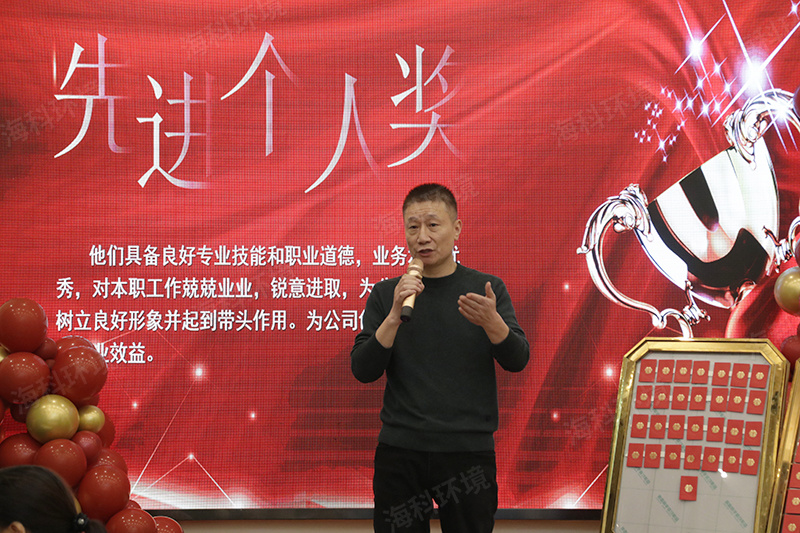ENERGY SAVING AND ENVIRONMENTAL PROTECTION EQUIPMENT AND ENGINEERING GENERAL CONTRACTING
The Essential Guide to Coal Dryers: Optimizing Efficiency in Industrial Drying Processes
2025-09-12
Coal dryers are specialized industrial equipment designed to remove moisture from coal, thus optimizing its performance and usability in various applications. The drying process is critical as it reduces the energy consumption during combustion and improves the quality of the coal, making it a vital component in many industrial operations.
One of the primary benefits of using coal dryers is improv
Coal dryers are specialized industrial equipment designed to remove moisture from coal, thus optimizing its performance and usability in various applications. The drying process is critical as it reduces the energy consumption during combustion and improves the quality of the coal, making it a vital component in many industrial operations.
One of the primary benefits of using coal dryers is improved energy efficiency. Wet coal exhibits lower calorific value, which means that more fuel is required to achieve the same energy output during combustion. By drying coal to the appropriate moisture content, businesses can significantly enhance the heating value of the coal, leading to reduced fuel costs and increased operational efficiency. This is particularly crucial in industries where coal serves as a primary energy source, such as power generation and cement manufacturing.
In addition to energy efficiency, coal dryers contribute to environmental sustainability. The combustion of wet coal produces higher emissions of pollutants, including particulate matter and sulfur dioxide. By ensuring that the coal is adequately dried before combustion, companies can reduce their environmental footprint and comply with stringent emission regulations. This not only protects the environment but also promotes a positive corporate image that is increasingly important in today’s eco-conscious market.
When considering the implementation of a coal dryer, several factors should be taken into account. The choice of technology—whether it be rotary dryers, fluidized bed dryers, or conveyor dryers—depends on the specific requirements of the operation, including the desired moisture content, coal type, and production volume. Each technology has its advantages and operational parameters that need to be understood to ensure optimal performance.
Moreover, maintenance and operational training are critical for the effective use of coal dryers. Regular maintenance checks can prevent costly downtime and ensure that the equipment operates at peak efficiency. Similarly, training personnel in the operation of the drying equipment can lead to improved safety and productivity.
Lastly, it's essential to consider the economic impact of installing and operating coal dryers. While there may be initial capital costs, the long-term savings achieved through reduced energy consumption and improved coal quality can justify the investment. Companies should conduct thorough cost-benefit analyses to evaluate the potential return on investment.
In conclusion, coal dryers play a crucial role in enhancing the efficiency and sustainability of industrial operations involving coal. By understanding their benefits, operational considerations, and maintenance needs, professionals in the industry can leverage this equipment to optimize their processes and achieve greater operational success.
One of the primary benefits of using coal dryers is improved energy efficiency. Wet coal exhibits lower calorific value, which means that more fuel is required to achieve the same energy output during combustion. By drying coal to the appropriate moisture content, businesses can significantly enhance the heating value of the coal, leading to reduced fuel costs and increased operational efficiency. This is particularly crucial in industries where coal serves as a primary energy source, such as power generation and cement manufacturing.
In addition to energy efficiency, coal dryers contribute to environmental sustainability. The combustion of wet coal produces higher emissions of pollutants, including particulate matter and sulfur dioxide. By ensuring that the coal is adequately dried before combustion, companies can reduce their environmental footprint and comply with stringent emission regulations. This not only protects the environment but also promotes a positive corporate image that is increasingly important in today’s eco-conscious market.
When considering the implementation of a coal dryer, several factors should be taken into account. The choice of technology—whether it be rotary dryers, fluidized bed dryers, or conveyor dryers—depends on the specific requirements of the operation, including the desired moisture content, coal type, and production volume. Each technology has its advantages and operational parameters that need to be understood to ensure optimal performance.
Moreover, maintenance and operational training are critical for the effective use of coal dryers. Regular maintenance checks can prevent costly downtime and ensure that the equipment operates at peak efficiency. Similarly, training personnel in the operation of the drying equipment can lead to improved safety and productivity.
Lastly, it's essential to consider the economic impact of installing and operating coal dryers. While there may be initial capital costs, the long-term savings achieved through reduced energy consumption and improved coal quality can justify the investment. Companies should conduct thorough cost-benefit analyses to evaluate the potential return on investment.
In conclusion, coal dryers play a crucial role in enhancing the efficiency and sustainability of industrial operations involving coal. By understanding their benefits, operational considerations, and maintenance needs, professionals in the industry can leverage this equipment to optimize their processes and achieve greater operational success.
Coal Dryer
RELEVANT INFORMATION
The 2023 Annual Meeting of Jiangsu Haike Environmental Technology Engineering Co., Ltd
2024-01-08
The 2023 Annual Meeting of Jiangsu Haike Environmental Technology Engineering Co., Ltd


 English
English Русский
Русский بالعربية
بالعربية

